Keystone Treatment Center is committed to delivering the highest quality care to help individuals struggling with prescription drug addiction find long-term recovery.
Learn More About Prescription Drug Abuse Recovery
Learn More About Prescription Drug Addiction Recovery at Keystone Treatment Center in South Dakota
While prescription medications provide an immense amount of relief for countless people throughout the world today, there are sadly many individuals who fall into the destructive pattern of abusing these substances. There are a number of different types of medications that are prescribed to treat a number of different ailments. Pain medications can enhance recovery, anti-anxiety medications can help alleviate distressful emotions, stimulants can enable one’s ability to focus, and sedatives can assist in providing restful sleep. Yet, while beneficial when used for legitimate medical purposes, all of these substances have the potential for abuse. When abused, pain medications, anti-anxiety medications, and sedatives can all produce feelings of extreme relaxation, euphoria, and an overall sense of well-being. Sedatives, when abused, can promote feelings of self-confidence and elicit energy and enhanced focus, while also promoting weight loss by reducing one’s appetite. Once the abuse of these substances has started, however, or an addiction has developed, it can be extremely difficult to overcome.
At Keystone Treatment Center, we recognize the pain that accompanies an addiction to prescription medication and we understand how difficult it can be to overcome this destructive behavior. For this reason, our rehab offers specialized programming that is delivered in an atmosphere of integrity, respect, accountability, trust, honesty, responsibility, and excellence so that individuals can successfully win the war against chemical dependency.
Helping a Loved One
Helping a Loved One or Family Member Get Treatment for Prescription Drug Addiction
Having a family member or loved one who is struggling with an addiction to prescription drugs can cause you to be ripe with concern. You know that your loved one needs help, but you may be unsure as to what you, personally, can do to assist him or her. Consider the following:
- Research the effects of the specific type of prescription medication that your loved one is abusing. Additionally, research the signs of overdose so that you can be prepared in case an emergency arises.
- Come to understand that addiction is a disease and that your loved one is no longer completely in control of his or her actions. This knowledge can assist you in developing a sense of empathy.
- While being understanding and empathetic is important, it is equally as important that you do not enable your loved one or make excuses for his or her behavior.
- Research treatment centers that specialize in providing care for individuals who are struggling with an addiction to prescription medication.
- Sit down with your loved one and have an open and honest conversation where you express your concerns and show him or her the research you have come up with regarding potential treatment centers. Allow your loved one to voice his or her own fears and concerns during this time as well.
- Encourage your loved one to engage in treatment by offering to call potential treatment providers and by offering to accompany your loved one to any appointments that may be scheduled.
- Once treatment has begun, ask your loved one’s treatment providers how you can be an active part of his or her therapeutic process. Additionally, ask how you can best encourage your loved one’s continued recovery once rehab has come to an end and he or she has returned home.
Why Consider Rehab?
Why Consider Rehab for Prescription Drug Addiction
When allowed to persist without appropriate treatment interventions, an addiction to prescription drugs can wreak havoc on individuals’ lives. Adults may experience similar struggles in their place of employment and this can result in job loss. Relationships frequently become strained and familial strife can arise as individuals begin to make their use of drugs their top priority. Additionally, the abuse of prescription medications can inflict harm on the health of users as well. Organ damage, cognitive impairment, memory disturbances, and a weakening of one’s immune system are just a few examples of things that can result from prolonged prescription drug abuse and addiction. Fortunately, by engaging in treatment, these negative occurrences can be avoided.
Treatments & Therapies Offered
Types of Treatment and Therapy Options for Prescription Drug Abuse at Keystone Treatment Center
At Keystone Treatment Center, in South Dakota, we are dedicated to offering comprehensive, individualized care for patients and their families. As a nationally recognized and respected treatment provider, Keystone is proud to offer inpatient treatment for individuals who are struggling with chemical dependency, including an addiction to prescription drugs, compulsive gambling, and co-occurring psychiatric disorders. Our multidisciplinary treatment team is comprised of a number of specialists who are devoted to delivering the highest level of quality, specialized services possible.
In order to provide truly individualized care that meets the varying needs of our patients, Keystone is proud to offer specialized treatment tracks within our residential programming. For adult patients, these specialized tracks include Gambling, Christian, Young Adult, Chronic Pain, Native American, Methamphetamine Corrections, and Opioids tracks.
The specific types of treatment that may be incorporated into each patient’s individualized treatment plan can include the following:
Medically monitored detoxification: Non hospital-based medically monitored detox services are provided to adult patients who do not require acute medical care, but who are in need of medical interventions to safely and successfully withdraw from addictive substances like prescription medications. Patients who receive prescription drug detox treatment are provided with around-the-clock nursing care, as well as meetings with physicians, in order to ensure that they are safe and comfortable throughout the process.
Medication management: When individuals are suffering from symptoms of a mental health condition in addition to an addiction to prescription drugs, there are certain psychotropic medications that may be prescribed in order to alleviate their distress. The use of any medications, however, is always determined based on each patient’s individual needs. Psychiatrists will meet with patients on an as-needed basis so that any medications that have been prescribed can be monitored or adjusted for therapeutic effectiveness.
Individual therapy: Patients will meet with their primary counselors for a minimum of two individual therapy sessions each week. The primary goal of these sessions is to assist patients in increasing their understanding of how their behaviors impact major aspects of their lives so that they can work towards being restored to a higher level of functioning. These sessions are also designed to help patients achieve a better understanding of themselves, while also developing more efficient and effective coping mechanisms.
Family therapy: Knowing the important role that families play in the successful recovery of our patients, Keystone Treatment Center offers different ways for families to be involved in their loved ones’ treatment processes. Individual family therapy sessions are led by a licensed family therapist and are offered on an as-needed basis. Our weekly Family Program is also available to patients and their family members and includes one hour of psycho-educational programming every Sunday prior to visiting hours. Additionally, day-long programming is offered on Mondays and Tuesdays for family members and is scheduled in conjunction with the family therapist.
Group therapy: Group therapy sessions are led by licensed or certified counselors and are meant to be a time for patients to work together to identify, present, and process various problems that they are facing and assist others in doing the same. Adult patients will take part in three group therapy sessions each day. The specific types of groups offered to adult patients include:
- Topics Group
- Interactive Sharing Therapy Group
- Community Group
- Relaxation Group
- 12-Step Group Meetings
- Skills Training Groups
- Spirituality Groups
- Gambling Group
- Women’s Topic Group
- Men’s Topic Group
- Young Adult Topic Group
Experiential therapy: Experiential therapy is offered for all patients on a daily basis and may be implemented based on each patient’s individualized treatment plan. The types of experiential therapies offered include:
- Recreational therapy
- Bibliotherapy
- Ropes course
- Cultural activities
- Arts and crafts
- Social training
- Pastoral care
For More Information
Find Out More Information About Prescription Drug Addiction Recovery at our Addiction Treatment Center
In addition to inpatient treatment, Keystone Treatment Center also offers partial care / day treatment services and intensive outpatient services for adults. With the overarching goal of helping to restore individuals to healthier, happier, and more productive lives, free from dependence on prescription drugs, all of the programming options at our rehab will be tailored to meet your or your loved one’s specific needs so that a brighter future can be within reach.











